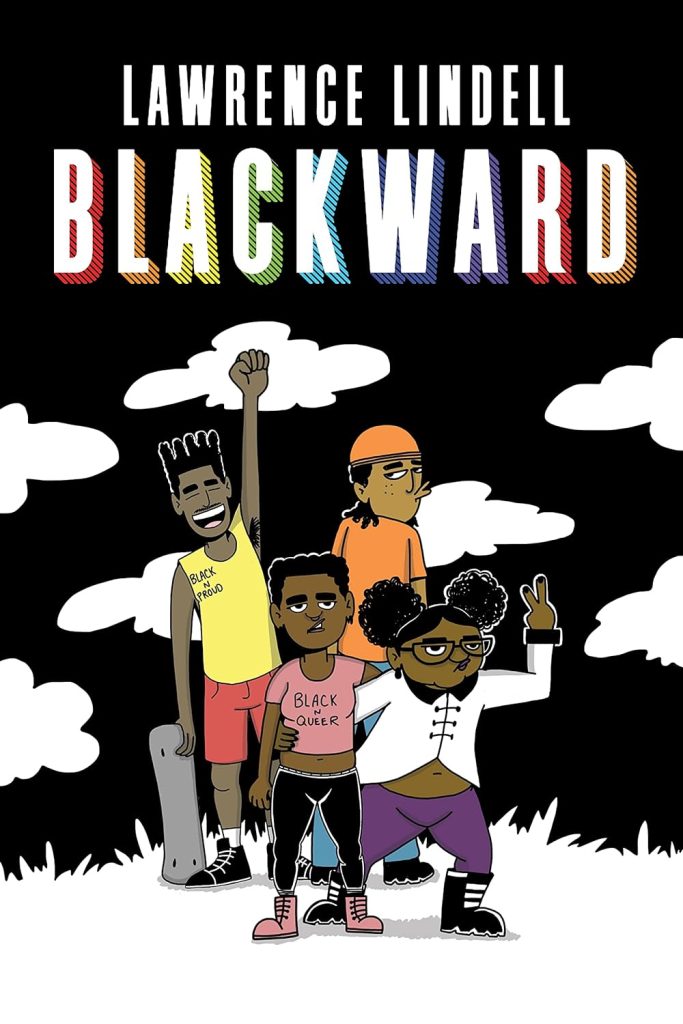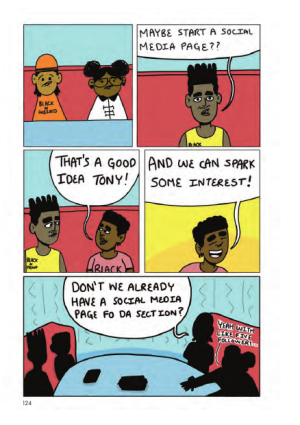Review by Frank Plowright
The sheer variety of personalities and attitudes Lawrence Lindell packs into Blackward’s opening pages is quite the condemnation of how little effort is made to ensure diversity over most graphic novels. The four main cast members define themselves as awkward outsiders, yet their meeting at the community hall is disrupted by someone for whom that’s threatening. It’s an early example of attitude and judgement being a constant accompaniment to some lives.
Lika, Amor, Tony and Lala are the main cast, over the opening pages defined via a clever pattern of each of four horizontal panels on a page dealing with one of them, followed by four successive pages each devoted to an individual in the bathroom. With few words it’s an effective method of conveying four people very compactly.
Unfortunately that opening doesn’t define the remainder of the book where Lindell stretches out a very slim story by page after page structured as if imitating a TV sitcom. There’s an opening statement or set-up, a pause, a punchline and a reaction, except sometimes there’s no punchline. This isn’t necessarily poor storytelling, but desperately needs to work in conjunction with other aspects. There’s a vibrancy to Lindell’s drawing, but it never transcends basic, so can’t distract, and there’s no compulsive plot to connect people and events. A search for a place to hold meetings, conditions applied on finding one, and memories of times gone by aren’t compelling enough, and when the pace is as slow as the sample art, Blackward really drags.
It’s a shame, because there are points being made here, not least how much easier it is to tear something down than to put in the effort to make it work. It’s also a celebration of diversity and displays the effect a casual, thoughtless comment can have on someone with anxiety issues. There’s a good graphic novel due on just such matters, but however well intentioned, Blackward isn’t it.





